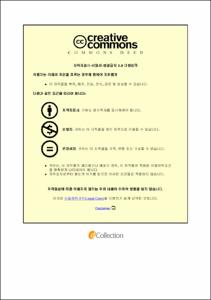영어 형용사 strong과 powerful에 대한 코퍼스 기반의 연어분석
- Alternative Title
- A study of Collocations of English Adjectives ‘strong’ and ‘powerful’ : a Corpus-based Analysis
- Abstract
- The purpose of this study is to analyze the collocation of English adjectives ‘strong’ and ‘powerful’ by using English-Korean dictionaries and COCA(Corpus of Contemporary American English), so that we can find out the aspect of the two adjectives used in real communication. The findings of this study are as follows.
First, after comparing the meaning of the two adjectives by five dictionaries, I found that the meaning of ‘strong’ included all meanings of ‘powerful’ but not the meaning of ‘man eun’. the meaning category of ‘strong’ was more inclusive than ‘strong’. Also, the central meanings of two adjectives were ‘gang reok han, yu reok han’ in common.
Second, according to the noun collocations of the two adjectives from COCA, the frequency of ‘strong’ was higher than that of ‘powerful’. Although the two synonyms had similar meanings, there were some differences in the aspect of the collocation. For example, some nouns were only used where ‘strong’ and ‘powerful’ were found, which indicates the importance of knowledge of collocation.
Third, after classifying the noun collocations of two adjectives, ‘strong’ was often used with an abstract noun and ‘powerful’ was used with a material noun frequently.
Lastly, when used with the noun collocations, ‘strong’ and ‘powerful’ had various meanings. After classifying that meanings based on the central meanings of the two adjectives, I found that ‘strong’ has the meaning of ‘gut sen, gang reol han, geok reol han’, and ‘powerful’ has the meaning of ‘gang han, gang reok han, gang in han’. But superficially, it was hard to distinguish the difference of the korean meaning of the two adjectives when they were translated.
In conclusion, the results indicate that the adjective ‘strong’ and ‘powerful’ share similar meanings but there are different collocational pattern when they are used with the nouns. This means that the synonyms can be used differently with certain nouns, which implies that EFL learners have some difficulties in using synonyms. For this reason, teachers should give students the information about the use pattern of the synonyms especially based on the authentic language. EFL learners actually don’t have an instinct like foreigners, so the materials that reflect the authentic language usage are crucial for learning English. As we see, COCA can be an effective material for EFL learners in that the collocational information of words helps learners easily gain the foreigner’s instinct required in real communication.
- Issued Date
- 2017
- Awarded Date
- 2017. 2
- Type
- Dissertation
- Publisher
- 부경대학교 교육대학원
- Affiliation
- 부경대학교 교육대학원
- Department
- 교육대학원 영어교육전공
- Advisor
- 박순혁
- Table Of Contents
- Ⅰ. 서론 1
1.1 연구의 필요성 및 목적 1
1.2 연구과제 3
1.3 연구의 구성 및 한계점 3
Ⅱ. 이론적 배경 및 선행연구 5
2.1 코퍼스분석 5
2.2 용어색인 프로그램 6
2.3 선행연구 7
Ⅲ. 연구방법 11
3.1 연구도구 11
3.1.1 사전 11
3.1.2 COCA 11
3.2 결과수집 및 절차 13
3.2.1 사전을 통한 수집 13
3.2.2 코퍼스를 통한 수집 13
Ⅳ. 연구결과 분석 16
4.1 사전적 정의와 명사연어 16
4.1.1 형용사 strong 16
4.1.2 형용사 powerful 20
4.1.3 형용사 strong과 powerful의 비교 23
4.2 코퍼스를 통한 분석 25
4.2.1 장르 비교분석 25
4.2.2 명사연어 비교분석 27
4.3 사전과 코퍼스 분석결과 비교 34
4.3.1 strong과 powerful의 의미비교 35
4.3.2 사전과 코퍼스의 명사연어 비교 37
4.4 형용사 유의어 strong과 powerful 쓰임의 차이 38
Ⅴ. 결론 및 제언 40
참고문헌 43
- Degree
- Master
- Files in This Item:
-
-
Download
 영어 형용사 strong과 powerful에 대한 코퍼스 기반의 연어분석.pdf
기타 데이터 / 1.04 MB / Adobe PDF
영어 형용사 strong과 powerful에 대한 코퍼스 기반의 연어분석.pdf
기타 데이터 / 1.04 MB / Adobe PDF
-
Items in Repository are protected by copyright, with all rights reserved, unless otherwise indicated.